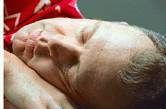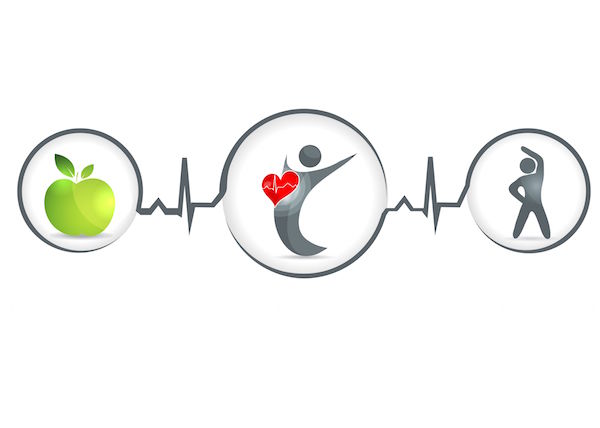
TUESDAY, June 11 (HealthDay News) — Sleep apnea raises the risk of sudden cardiac death, according to a long-term study that strengthens a link doctors have suspected.
“The presence and severity of sleep apnea are associated with a significantly increased risk of sudden cardiac death,” said study leader Dr. Apoor Gami, a cardiac electrophysiologist at Midwest Heart Specialists-Advocate Medical Group in Elmhurst, Ill.
The new research is published online June 11 in the Journal of the American College of Cardiology.
Sleep apnea — in which a person stops breathing frequently during sleep — affects about 12 million American adults, although many are not diagnosed. The diagnosis is made after sleep tests determine that a person stops breathing for 10 seconds or more at least five times hourly while sleeping.
Some research suggests that sleep apnea is on the rise, in part because of the current obesity epidemic.
Sudden cardiac death kills 450,000 people a year in the United States, according to study background information. It occurs when the heart unexpectedly and suddenly stops beating due to problems with the heart’s electrical system. Those problems cause irregular heartbeats. The condition must be treated within minutes if the person is to survive.
Electrophysiologists are cardiologists who treat these heart rhythm problems.
In earlier research, Gami and his team had found that patients with sleep apnea who suffered sudden cardiac death often did so at night, a completely opposite pattern than found in others without sleep apnea who had sudden cardiac death.
“That was the first direct link [found] between sudden cardiac death and sleep apnea,” Gami said.
In the new study, the researchers tracked more than 10,000 men and women, average age 53, who were referred for sleep studies at the Mayo Clinic Sleep Disorders Center, mostly due to suspected sleep apnea, from 1987 through 2003. After sleep tests, 78 percent were found to have sleep apnea.
During the follow-up of up to 15 years, they found that 142 had sudden cardiac arrest, either fatal or resuscitated.
Three measures strongly predicted the risk of sudden cardiac death, Gami said. These include being 60 or older, having 20 apnea episodes an hour or having low blood levels of oxygen.
This “oxygen saturation” drops when air doesn’t flow into the lungs. “If the lowest oxygen saturation was 78 percent, or less, their risk of [sudden cardiac death] increased by 80 percent,” Gami said. In a healthy person, 95 percent to 100 percent is normal.
Having 20 events an hour would be termed moderate sleep apnea, Gami said.
Gami found a link, not a cause-and-effect relationship, between sleep apnea and sudden cardiac death. He can’t explain the connection with certainty, but said there are several possible explanations. For example, sleep apnea is related to the type of heart rhythm problem that causes sudden cardiac death, he said.
The study findings should be taken seriously by those who have sleep apnea or suspect they do, said Dr. Neil Sanghvi, an electrophysiologist at Lenox Hill Hospital, in New York City, who reviewed the findings.
People with sleep apnea are often but not always obese, and many have other heart risk factors such as heart failure or heart disease. Having these other risk factors already puts a person at risk of sudden cardiac death, Sanghvi said. “The sleep apnea may be the tipping point. Each of these factors adds a level of risk. When you add sleep apnea, you could have a worse outcome.”
Anyone who suspects they have sleep apnea should ask their doctor about a sleep test, Sanghvi said. Daytime sleepiness and fatigue are frequent symptoms. Another tipoff is a bed partner who complains of snoring.
The study didn’t address whether those who used sleep apnea treatments — such as the CPAP machine (continuous positive airway pressure) prescribed during sleep to help breathing — would reduce risk. “It would be fair to say we suspect it would,” Gami said.
The U.S. National Institutes of Health funded the study. Gami has served as a consultant for Medtronic, Boston Scientific and St. Jude Medical, which make defibrillators and other heart devices. Other study authors have also worked for heart device manufacturers and CPAP makers.
More information
To learn more about sleep apnea, visit the National Sleep Foundation.

